
—
Bahay Kubo or kubo for short, is an old style of stilt home unique to the Philippines. The subject of a folk song that Filipino kids know by memory, like the Alphabet song, it is a Philippine icon. Although not all kubo are compact, the first thing that comes to mind is a raised cube built of bamboo, nipa, and anahaw that serves as a home back in the days. Kubo is a symbol of Bayanihan, a most cherished Filipino value.
In the past, community members would volunteer to assist a family move to a new location as part of the Bayanihan custom, which is still prevalent in many Philippine towns today. That is, to move the entire house—typically a kubo—to a particular spot or a new piece of land.
The tradition serves as a prime example of the phrase “Bayanihan” which has come to denote a community-wide effort to resolve conflicts, offer assistance when required, or accomplish a specific goal.

Table of Contents
Community
With this concept, KUBÖ (Kultur Bayanihan Ōsterreich) 2023, a festival organized by SENTRO – Sentro ng Kultura at Wika ng Austria at Pilipinas (Center of Filipino and Austrian culture and language) concluded with a bigger and more positive outcome, following last year’s success. Community plays a crucial role for people who have migrated to a new location, especially when moving to a different country or cultural context. The importance of community for migrants can be understood through various aspects as emphasized in the 3-day festival.
Social Support
Migrating to a new place can be challenging and overwhelming. A supportive community can provide emotional and practical assistance, helping migrants cope with homesickness, cultural shock, and the difficulties of adjusting to a new environment. These efforts extend to generation after generation.
The first Filipinos who migrated to Austria were nurses, they came under the bilateral cooperation with the Philippine government to specifically recruit them for the lack of manpower at that time. They arrived in Vienna on July 17, 1974 and have since established families comprising the more than 30,000 Filipinos in Austria (including those who would migrate later on). For those born in Austria from migrants, having two countries to identify with may not be easy (speaking about other mixed cultures too).
Through the years, there are a lot of cultural activities that Filipino regional groups organize while some are national events for every Filipino, regardless of where among the 2000 inhabited Philippine islands they come from. KUBÖ is one such event, the event made it possible to remove regional barriers and bring together those who want to learn and appreciate Filipino culture despite the differences each region offers.
Cultural Connection
Being part of a community with shared cultural backgrounds and traditions can help migrants maintain a sense of identity and belonging. It provides an opportunity to celebrate cultural festivals, share native languages, and practice customs that might be unfamiliar or unavailable in the host country.
The Philippines is 10,042 km away from Vienna or roughly 13 hours by plane (direct), and that is to Manila, the capital. Having a celebration that highlights Filipino culture and tradition within Vienna is much more convenient and is way less-expensive. Participants danced and sang to music inherent to Filipinos, and ate food unique to the Filipino palate.
The references to Filipino culture were spot on! There’s the sari-sari store’s hanging items for sale, movie posters of every kind, you can buy chicharon and pinoy chichirya to munch on while chit-chatting with friends. Aside from the bahay kubo and banig (see foremost photo), there were palayok, banderitas, and a display of traditional Filipino clothing that brings back the nostalgia of home from a bygone era.
There were ube and leche flan for the halo-halo, ensaymada, kare-kare, kaldereta, barbeque on stick, and lechon among the many pinoy delicacies to feast on! As they say, “You never leave a Filipino’s house hungry….” – yes, no one left KUBÖ hungry, and it’s not far-fetched to say that every one came home with a lot of food, too.
Information and Resources
Community members often share valuable information about local resources, services, and opportunities. This can include guidance on finding housing, employment, education, healthcare, and legal support. Such information can be critical for successful integration and navigating a new system.
The event was graced by administrative bodies of Vienna and the Philippines. Philippine ambassador to Austria Evangelina Lourdes A. Bernas outlined the roles of the Embassy and Permanent Mission and later on discussed how the Embassy can assist and support the Filipino communities in Austria, Croatia, the Slovak Republic, and Slovenia.
At KUBÖ, experts among different fields discussed issues that migrants face whether then or in the present. Some of the important issues that were tackled include the following:
“Disinformation in journalism and social media – impacts to Filipino diaspora youth” – issues on fake news proliferating the online world and how journalists of today are fighting such to educate the youth were discussed by moderator, SENTRO head Arlene Castaneda and guests Marina Wetzlmaier, journalist for radio and print and is currently working at Radio FRO, the free radio station from Linz, Austria; Christian Esguerra, an award-winning Filipino political journalist and educator; and Candy Gourlay, a Filipino author based in the United Kingdom who has been shortlisted for the Carnegie Medal.
“Empowering Filipina journalists in Europe” – moderated by Ralph Chan, a sociologist and the bureau editor of Roots and Wings Magazine in Austria. He was joined in by guest journalists Marina Wetzlmaier, Jofelle Tesorio, a journalist and academic researcher based in the Netherlands, and Rose Eclarinal, a broadcast journalist based in London.
Language Acquisition
Being part of a community can facilitate language learning. Interaction with native speakers within the community can improve language skills and help migrants communicate effectively in their new environment. Thus, the Paaralan sa Pasuguan was a timely initiative by SENTRO in cooperation with the Philippine Embassy in Vienna that ran from August 12 to September 2. Participants, kids from 7-15 years old, learned about Filipino language and culture through arnis, traditional games, drawing, photography and folk dances.
The three-day event was also a perfect setting for younger ones to practice their Filipino. Given that kids speak German everyday, they were able to converse as much of the language with aunts, uncles, and friends who came in to look, eat, and participate at the event.
Networking and Social Connections
Communities provide opportunities to build new friendships and social networks. These connections, or lack of, can alleviate feelings of isolation and loneliness that migrants might experience, as well as create a sense of camaraderie and mutual support. KUBÖ once again tapped the talents of The Filipino Visual Artists in Austria (FVAA) having their artworks aligned to the theme “Evolving Filipino Heritage” on display throughout the event.
The paintings were the best starting point for a conversation. On display, they can be a great way to engage with others and explore various topics. Art is a universal language that can spark discussions on a wide range of subjects, including history, culture, emotions, and personal experiences. When artists put figures and colors to these topics, people are able to relate and discuss.
Mental Health and Well-being
Feeling connected and supported by a community contributes to positive mental health outcomes for migrants. It reduces feelings of stress, anxiety, and depression that can arise from the challenges of migration and adjustment. Combined with artistic activities, a community will certainly improve one’s mood. Artistic activities have the same benefits of art therapy – to provide an outlet for individuals to express their emotions, thoughts, and experiences. This can help people process and release pent-up feelings, reducing stress and anxiety.
Preservation of Identity
Communities can act as spaces where migrants can maintain their cultural identity, pass down traditions to future generations, and create a sense of continuity between their past and present lives. Such festivals make it for younger generations to visualize the past that they have not personally experienced. It gives them a peek through the colorful practices their parents and grandparents had in an era before mobile phones, selfies, and social media.
The 3-day event was full of dancing, colorful costumes, and representation of the different Philippine tribes. We saw the Ton’ak Ifugao Rice Harvest with performers coming from all ages. We were also enchanted by Singkil, a sophisticated, royal dance of a prince and a princess as they go through crisscrossed bamboo poles clapping in sync to kulintang and agung.
Advocacy and Representation
Communities can advocate for the rights and interests of migrants, especially when they face discrimination, marginalization, or unequal treatment. Collective voices can be more impactful in promoting change and ensuring fair treatment. The discussion “Girl, Boy, Bakla, Tomboy: Navigating Pinoy Queerness” with Charmaine Taus, Godwin Merano, and Gerard Rabara dealt with issues of growing up with queerness and how we can all live to let live, not judging anyone but just being kind despite the differences in our preferences and opinions.
Skills and Knowledge Exchange
Within a community, migrants can share skills, expertise, and experiences, fostering a sense of mutual learning and growth. This exchange can lead to personal and professional development.
There were a lot of workshops held throughout the festival. For one, there’s “From Pintados to the cover of Vogue: The Art and History of Filipino Tattoo Culture,” an interactive workshop where Imelda Perez-Papai and Charmaine Taus worked together to situate Filipino tattoo culture in terms of its pre-colonial origins, current popularity, and hopefully prosperous future. Imelda Perez-Papai later on presented some of the designs that were done live during the workshop’s concurrent live body painting session with other members of the FVAA.
Lisa Pangan’s “Coffee Painting” workshop introduced a younger art form (started 20 years ago), Arfé (Art + Cafe). As part of the workshop, participants experimented with coffee as a medium and talked about the art form, creating their own paintings as the workshop progressed. The art pieces were later on seen at the venue’s entrance.
Sense of Belonging
Ultimately, community provides a sense of belonging and a space where migrants can feel accepted, valued, and part of a larger social fabric. This sense of belonging can positively impact their overall well-being and integration into the new society.
Overall, the importance of community for migrants is multifaceted and extends beyond just social interactions. It plays a vital role in helping migrants successfully adapt to their new environment, contribute to the host society, and lead fulfilling lives.
Helping Third Culture Kids
Promoting cultural heritage to third culture kids (TCKs) is important for several reasons, as it contributes to their personal, social, and emotional development, as well as their ability to navigate their unique identity. Third culture kids are individuals who have spent a significant part of their formative years in a culture different from that of their parents’ or their passport country. Here’s why promoting cultural heritage is valuable for TCKs:

Identity Formation
TCKs often struggle with questions of identity due to their exposure to multiple cultures. Promoting their cultural heritage helps them develop a stronger sense of self by understanding and connecting with their roots, which can serve as a foundation for their identity.
Cultural Literacy
Learning about their cultural heritage provides TCKs with a deeper understanding of their background and the world around them. This cultural literacy fosters a broader perspective and empathy towards diverse cultures and people.
Self-Esteem and Confidence
Embracing their cultural heritage helps TCKs develop a positive self-image. Learning about their traditions, language, and history can boost their self-esteem and provide a sense of pride in their background.
Family Bonds
Promoting cultural heritage allows TCKs to bond with their parents and extended family members who share the same heritage. It creates opportunities for intergenerational connections, stories, and shared experiences.
Connection with Extended Family
For TCKs who might be physically distant from their extended family, maintaining cultural heritage offers a way to bridge the gap and build relationships with relatives across different parts of the world.
Resilience and Adaptability
TCKs often possess high levels of adaptability, and understanding their cultural heritage can enhance this trait. By recognizing their roots, they can navigate between different cultures more effectively and develop coping strategies for cross-cultural situations.
Preservation of Tradition
Promoting cultural heritage ensures that traditions, rituals, and customs are passed down to the next generation. This helps preserve cultural heritage in a globalized world.
Language Skills
Learning the language of their heritage culture can offer TCKs valuable language skills, which can be advantageous in terms of communication, career opportunities, and understanding different linguistic contexts.
Global Citizenship
Understanding and appreciating their cultural heritage can foster a sense of global citizenship. TCKs are often well-equipped to engage with and contribute to an interconnected world.

Cultural Bridge
TCKs can become cultural bridges between different cultures, helping to promote cross-cultural understanding and communication among their peers and communities.
Artistic and Creative Expression
Cultural heritage often includes various forms of artistic expression, such as music, dance, literature, and art. Engaging in these activities can provide TCKs with creative outlets and a means of connecting with their heritage.
Emotional Well-being
Being disconnected from one’s cultural heritage can lead to a sense of loss and emotional distress for TCKs. Promoting cultural heritage can contribute to their overall well-being and mental health.
Being in a community and promoting cultural heritage to third culture kids is vital for their holistic development, self-identity, and ability to navigate the complex world of multiple cultures. It empowers them to embrace their unique background and contribute positively to both their personal lives and the broader global community.

--------------------------Book your Vienna stay here!--------------------------
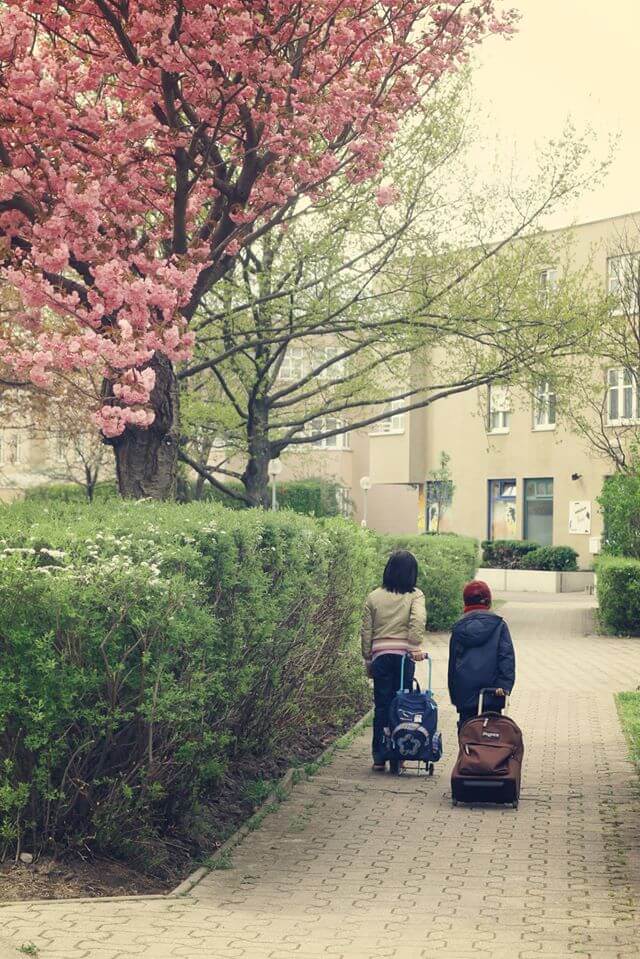
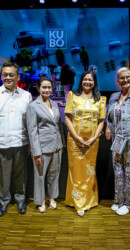
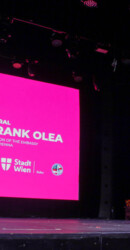

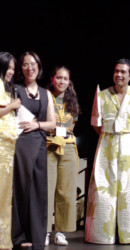
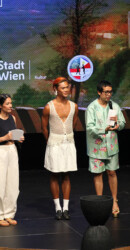
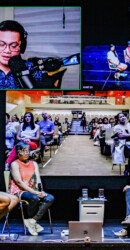







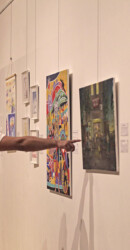
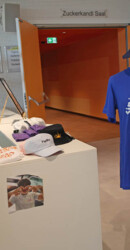

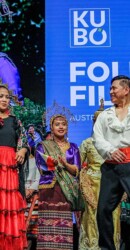
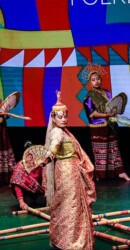
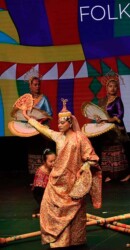

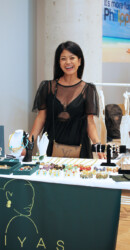



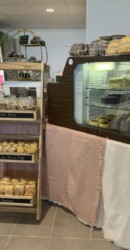
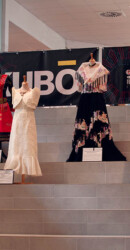
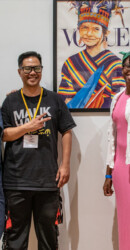




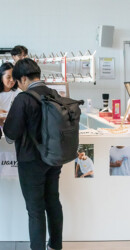
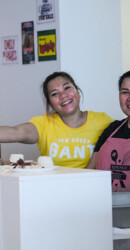
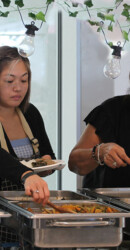
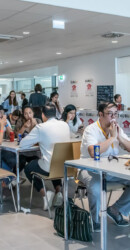




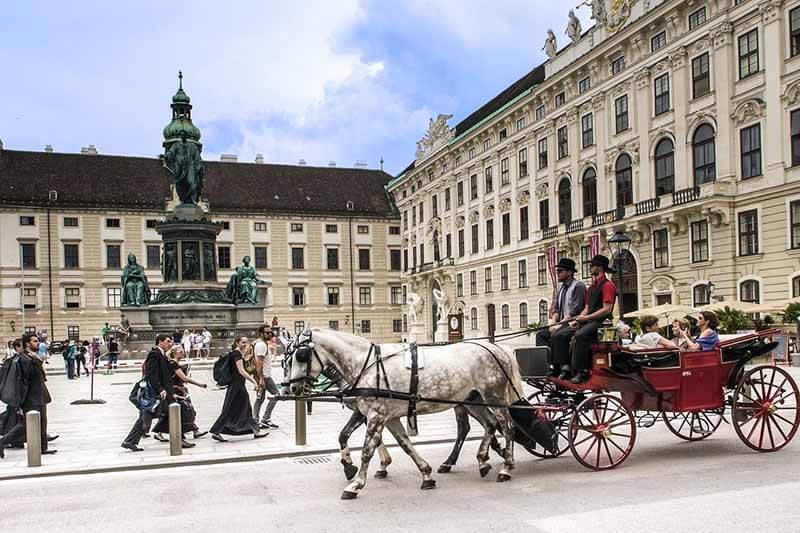
This sounds like such a great festival. It’s a great opportunity to reconnect with your heritage and get your kids involved too.
I love this! What a wonderful fest. I always love learning about other cultures.
Looks like a lot of fun! A great way to encourage and support the community.
This is such a great way to bond and reconnect with one’s culture!
What a cool event. I like that it includes so many great topics.
This sounds absolutely beautiful. I love the sharing and preserving of culture, and the whole experience sounds lovely.
Such a really great and wonderful event! It look so much fun! I love it
This is truly a fantastic event, sharing culture and preserving it is really wonderful. Thanks for sharing this with us
Looks like an exciting event! Can’t wait to join the festivity
Wow! What a great initiative. Kudos for promoting the Filipino culture there in Vienna. Hope we can have more events like this in other countries.
I just love cultural festivals, I bet Kubo is such a lovely event to attend too!
The support of the community is so important. You are lucky to have such a beautiful community in Austria!
Great job on sharing about KUBÖ2023! Your enthusiasm shines through, and it’s fantastic to see such community events connecting Filipinos in Austria. Looking forward to more updates and events like this!
Thank you so much for sharing this! I think that this is a fantastic event, it is beautiful to be able to share culture and preserve it in such a wonderful way.
It is nice to see a community celebration like this. So much great culture and things to celebrate!
I am so delighted to know about this Fest. It would be great to attend and experience the joy that this Fest brings to Filipinos.
It sounded like an amazing event. With all the resources that everyone is looking for. Thanks for sharing this with us.
This is so heartwarming. Having an event or gathering like this definitely helps migrants to feel a sense of belonging. I have experienced being a migrant worker and oh, the loneliness and homesickness was unbearable at first! But having a community that supports and gives you a feeling of being “at home” greatly helps.